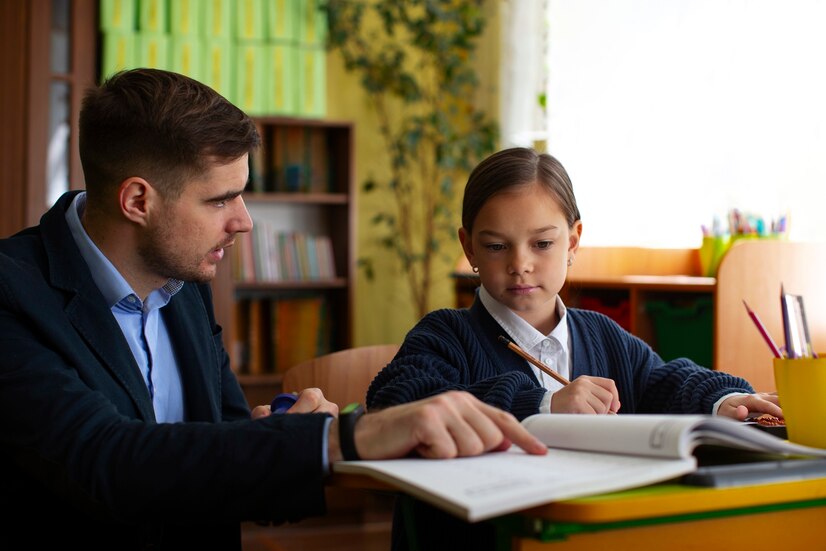As education continues to evolve, many parents are reevaluating their options for their children’s schooling. While public schools have long been the default choice for most families, an increasing number are making the switch to private education. But what exactly is driving this trend? In this blog post, we’ll explore the private school advantage, highlighting the benefits that are motivating parents to choose private institutions over their public counterparts.
1. Smaller Class Sizes
One of the most significant advantages of private schools is their smaller class sizes. This allows for a more personalized learning experience, where teachers can devote more time and attention to each student. In a private school setting, students often receive individualized instruction tailored to their learning styles and needs, which can lead to better academic outcomes. Smaller classes also foster a sense of community among students, helping them build stronger relationships with their peers and teachers.

2. Tailored Curriculum
Private schools often have the flexibility to design their own curricula, allowing them to focus on specific educational philosophies or teaching methods. This can include an emphasis on arts, sciences, or advanced placement courses that may not be available in public schools. Parents who prioritize a well-rounded education may find that private schools provide more diverse options, including specialized programs in areas such as music, theater, or STEM (science, technology, engineering, and mathematics).
3. Enhanced Resources and Facilities
Many private schools have more resources at their disposal than public schools, leading to better facilities, extracurricular programs, and educational tools. This can include state-of-the-art technology, well-equipped science labs, and access to advanced coursework. Additionally, private schools often offer a wider range of extracurricular activities, from athletics to clubs and community service opportunities, giving students a chance to explore their interests and develop new skills.
4. Stronger Academic Performance
Research has shown that students in private schools often perform better academically than their peers in public schools. While many factors contribute to this trend, the combination of smaller class sizes, tailored curricula, and enhanced resources all play a role. Private schools also tend to have rigorous admissions standards, attracting motivated and academically inclined students. As a result, parents may find that private school students often score higher on standardized tests and have a greater likelihood of pursuing higher education.

5. Values-Based Education
For many parents, the values and beliefs that a school instills in its students are just as important as academic performance. Private schools often have a specific mission or educational philosophy that emphasizes particular values, such as character development, community service, or religious teachings. This alignment with family values can provide parents with peace of mind, knowing that their child is receiving an education that reflects their beliefs.
6. Stronger Community Involvement
Private schools often cultivate a strong sense of community among students, parents, and faculty. With smaller student populations, families can develop closer relationships with teachers and staff, fostering an environment of support and collaboration. Many private schools also encourage parental involvement through volunteer opportunities and events, allowing families to become active participants in their child’s education. This sense of belonging can enhance a child’s overall educational experience and lead to lasting friendships.
7. Better College Preparation
Many private schools place a strong emphasis on preparing students for college and beyond. This includes not only rigorous academic coursework but also guidance on college admissions processes, standardized test preparation, and college counseling services. Students at private schools often benefit from a network of alumni who can provide insights and connections to colleges and universities. As a result, parents may feel more confident that their child will be well-prepared for higher education.

8. Flexibility and Innovation
Private schools are often more adaptable than public schools when it comes to educational trends and innovations. This flexibility allows them to quickly incorporate new teaching methods, technologies, and curricula to meet the evolving needs of students. For example, many private schools have embraced online learning platforms and blended learning models, providing students with a more dynamic and engaging educational experience.
In Conclusion
The choice to transition from public to private education is highly individual and can differ significantly from one family to another. Nevertheless, the benefits of private schooling are unmistakable. With advantages like smaller class sizes, customized curricula, improved resources, and an education grounded in values, many parents are finding themselves increasingly attracted to what private schools provide.
As the educational landscape evolves, these institutions are establishing a unique position that resonates with families looking for the best educational experiences for their children. If you’re thinking about making this switch, investigating nearby private school options could open the door to a transformative educational journey for your child. Additionally, as you consider this change, don’t forget to evaluate the best HELOC rates in Pennsylvania to help finance your decision effectively.







